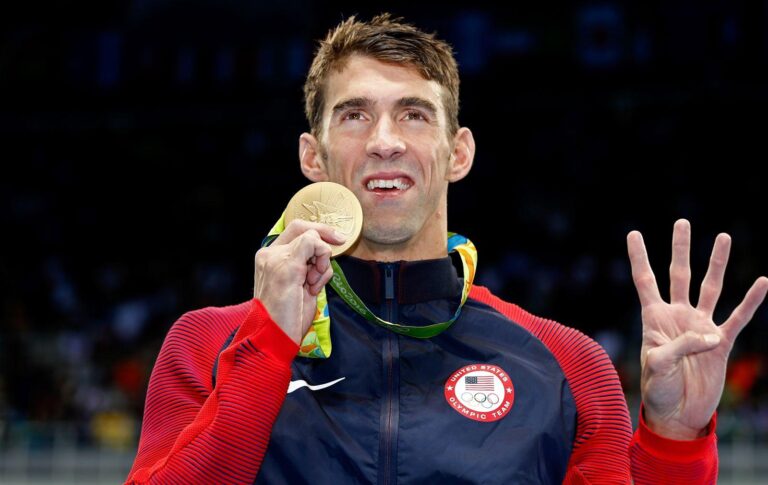In the wake of Michael Phelps’ candid remarks, a critical examination of USA Swimming reveals challenges that extend far beyond the pool and podium. As the sport’s most decorated Olympian points to systemic issues within the organization, questions arise about its leadership, culture, and long-term vision. This article delves into the underlying problems overshadowing USA Swimming’s celebrated medal counts, exploring why Phelps’ critique resonates within and beyond the swimming community.
Michael Phelps Exposes Systemic Issues Within USA Swimming
Michael Phelps, long celebrated as the greatest Olympian of all time, is now turning his spotlight from podiums to problems, shedding light on the deep-rooted systemic flaws plaguing USA Swimming. Far beyond the glossy surface of medals and records, Phelps points to a culture that fosters extreme pressure, lack of mental health support, and uneven access to resources. These underlying weaknesses not only hinder athlete welfare but also threaten the sport’s long-term sustainability and inclusiveness. His candid revelations underscore the urgent need for transparent reforms that prioritize swimmer well-being alongside competitive success.
Key systemic issues outlined include:
- Insufficient mental health resources and stigma surrounding athlete vulnerability.
- Disparities in training facilities and coaching quality across regions.
- Lack of accountability and transparency within leadership roles.
- Overemphasis on winning at the expense of athlete development and safety.
| Issue | Impact |
|---|---|
| Mental Health Neglect | Increased burnout and dropout rates |
| Resource Inequality | Uneven athlete development opportunities |
| Lack of Accountability | Repeated misconduct incidents remain unaddressed |
The Hidden Challenges Beyond Olympic Medal Counts
Success in the pool often masquerades as mere medal counts, but the real crisis lies beneath the surface. Despite its dominance on the Olympic stage, USA Swimming grapples with systemic issues that transcend podium finishes. The relentless spotlight on gold medals obscures challenges including inadequate grassroots development, inequity in access to training facilities, and a culture that sometimes prioritizes star athletes over sustainable team growth. These factors contribute to a fragile foundation that could leave the sport vulnerable to decline in future competitions.
Analyzing performance data alongside underlying structures reveals a disconnect between high-profile success and long-term progress. Consider the disparities in youth engagement and coaching quality across regions, which stunt talent cultivation despite an abundance of resources. This table highlights key areas where USA Swimming’s metrics show strength compared to where cracks appear:
| Aspect | Strength | Weakness |
|---|---|---|
| Elite Athlete Development | World-class training programs | Lack of pipeline continuity |
| Community Outreach | Selective regional hubs | Limited nationwide access |
| Resource Allocation | High investment in top teams | Unequal grassroots funding |
- Disparities in coaching expertise limit the consistent growth of upcoming swimmers.
- Economic barriers restrict access for many promising athletes, especially in underserved communities.
- Cultural pressures emphasize short-term victories over building a resilient swimming ecosystem.
Rebuilding Trust and Accountability to Restore American Swimming’s Future
Reforming USA Swimming’s culture requires more than superficial changes; it demands a sustained commitment to transparency and responsibility at every level. The revelations of systemic abuse and organizational neglect have shattered confidence not only among athletes but also the broader public. To move forward, USA Swimming must implement rigorous oversight mechanisms, empower independent review boards, and cultivate an environment where athlete voices are prioritized and protected from retribution.
Key measures include:
- Mandatory safeguarding training for coaches and staff
- Strict enforcement of whistleblower protections
- Comprehensive mental health resources for athletes
- Annual transparency reports published for public scrutiny
| Reform Area | Proposed Action | Expected Outcome |
|---|---|---|
| Athlete Safety | Enhanced reporting channels | Increased trust & quicker intervention |
| Leadership Accountability | Independent oversight committees | Clearer lines of responsibility |
| Community Engagement | Regular town halls & athlete panels | Stronger communal trust |
The Conclusion
In acknowledging Michael Phelps’s critique, it becomes clear that USA Swimming’s challenges extend far beyond the medal count. Addressing systemic issues within the organization is essential not only for sustaining competitive success but also for fostering a healthier, more inclusive environment for athletes at all levels. As the sport looks to the future, meaningful reforms will be crucial if USA Swimming is to reclaim its standing on and off the podium.




